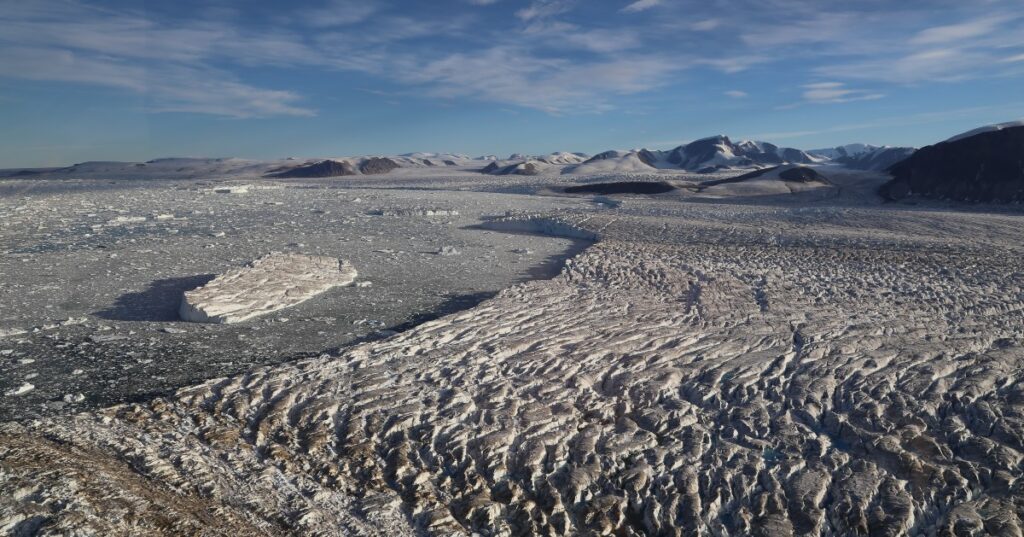Researchers from the University of Ottawa, Canada, have become the first to map out all the glaciers that end in the ocean in the northern hemisphere (marine terminating), while providing a measure of their rate of change over the last 20 years.
Published in the journal Geophysical Research Letters, the paper analyzes all 1,704 glaciers that touched the ocean in the year 2000 and documents their frontal position in 2000, 2010 and 2020. It is hoped that the findings will help scientists better understand and predict the impact of climate change north of the equator.
Will Kochtitzky, lead author and PhD candidate in the department of geography, environment and geomatics at the University of Ottawa, said, “Since 2000, glaciers in the northern hemisphere that end in the ocean lost a total area of 390km2 per year. That’s 6.6 times the area of Manhattan, or an average of more than 1km2 per day.”
According to the study, glaciers flowing from the Greenland Ice Sheet accounted for more than 60% of total area losses.
“Of the 1,704 glaciers that ended in the ocean in the year 2000, a total of 123 of them no longer met the ocean in 2020 due to retreat,” said Kochtitzky. “Overall, we found that 85% of glaciers retreated, 12% did not change within uncertainty limits, and only 3% of glaciers advanced from 2000 to 2020.”
According to the researchers, while melting ice caps and shrinking glaciers around the world can be attributed to climate change induced by human activities, local topographic and environmental conditions are important in explaining why some glaciers have retreated more than others.
Luke Copland, co-author and full professor in the department of geography, environment and geomatics at the University of Ottawa, and university research chair in glaciology, said, “We found large variations in glacier response to similar changes in air and ocean temperature and sea ice concentrations, showing that unique glacier characteristics are the most important factor in controlling the variability of glacier retreat. The loss of ice shelves across the Arctic is one of the main drivers of retreat. Glaciers that have an unusually wide margin where they meet the ocean, and those that have a bed below sea level and which gets deeper away from the coast, also saw particularly fast retreat rates.”
Of the few glaciers that defied the odds and advanced instead of retreating, most were due to “internal instabilities called surge events”, which cause the glacier to move 10 to 100 times faster than normal for a few years.
“However, glaciers that displayed large advances due to surging over the past decade are likely to experience large retreats in the next few years, with overall retreat in the long term,” said Kochtitzky.
The two researchers manually examined satellite imagery at the University of Ottawa to map the glaciers and measure the retreat.
“Prior to this study, we didn’t even know how many glaciers reached the ocean in the northern hemisphere, let alone understand how or why they were changing,” added Kochtitzky. “This study has mapped every such glacier for the first time, and from this provided the first measure of their rates of change. This information is crucial for understanding the impacts of climate change on a hemispheric basis and will be used in future climate assessment reports such as those issued by the Intergovernmental Panel on Climate Change (IPCC).”
According to the researchers, marine-terminating glacier losses are widespread across the northern hemisphere, and there is little likelihood that these losses will slow down under the current climate regime.
“We have lost at least a dozen ice shelves over the past 20 years because a climate threshold has been reached beyond which these ice masses can no longer survive,” said Copland. “The few remaining ice shelves in northern Canada, Greenland and Russia are likely to disappear in the coming decades.”
To view the complete paper Retreat of northern hemisphere marine-terminating glaciers, 2000-2020, click here.



